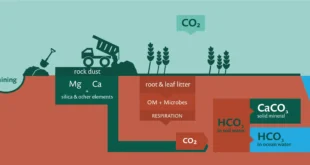- The idea of ‘alienation’ by Karl Marx is one of the most widely discussed concepts in social, political and economic theory. It is an idea that a young Marx developed out of his study of Friedrich Hegel. Marx first explained the concept of alienation in Economic and Philosophical Manuscripts and later elaborated on it in his seminal work, Capital.
- According to the Merriam Webster dictionary, alienation refers to a person’s “withdrawal or separation from an object or position of former attachment” or, in the case of property, “a conveyance of property to another.” In Marxist understanding, alienation refers to a feeling of separation from one’s own labour and the loss of power over it.
Forms of alienation
- Marx discussed four forms of alienation. Let us use the example of workers at an iPhone factory to explain each of these forms.
- Workers in such factories work long hours to produce high-end, expensive phones, which they can by no means afford, and over which they have no ownership or control.
- The phones are created for the capitalist, and are merely produced for exchange value. Thus, the first form of alienation is what Marx calls the alienation from the product of labour.
- As the product is immediately possessed and controlled by someone else, it assumes a power of its own.
- In modern times, where manufacturing is highly specialised and segmented, workers are often not even aware of what they are producing, since the production process is highly segmented.
- The second is what he calls alienation from the process of labour. Workers in iPhone factories reportedly work long hours, in poor conditions and for low wages. They perform repetitive tasks.
- The more the workers produce, the more productive power there is for someone else to own and control. Where does all the work go
- While the work sustains the worker, a lot of it goes into reproducing the means of production, on behalf of the owners and their power.
- In the process, Marx argued, workers become miserable. He wrote: “The worker becomes an ever-cheaper commodity the more goods he creates.
- He does not develop freely his mental and physical energies but is physically exhausted and mentally debased.
- The worker, therefore, feels himself at home only during his leisure time, whereas at work he feels homeless.
- His work is not voluntary but imposed, forced labour.” Thus, the third form is alienation from humanity.
- Individuals perform these mundane tasks and act less and less like human beings, and more and more like machines.
- As illustrated in an article in The Guardian, a worker at an iPhone factory said that 1,700 iPhones passed through her hands every day; she was in charge of wiping a special polish on the display.
- In such a scenario, according to Marx, man loses what he calls “species-being,” or what makes man human and different from other species through his productive activity.
- Workers also slowly start becoming competitive as they do not want to lose their jobs. The job is so arduous that they live away from their families as they are not able to find other, better-paying jobs.
- While iPhones are produced at different factories in China nowadays, for a long time, they were largely assembled at Foxconn’s 1.4 square-mile flagship plant just outside Shenzhen.
- The sprawling premises, according to The Guardian article, alone housed some 4,50,000 workers. In 2010, reports emerged that many of the workers died by suicide and had attempted suicide due to the brutal working conditions. A CBS news report said of one of the workers Yu
- “Her roommates also were from different parts of China, so there were significant linguistic barriers. Those might have been overcome with time — except there was no time. The factory was, she said, ‘a massive place of strangers.” This illustrates Marx’s fourth form of alienation: alienation from society.
- In this manner, the process of alienation of workers — from the product, the process, from themselves and their abilities, and from others — is complete.
Other perspectives on alienation
- Other writers have interpreted alienation in a more social-psychological sense to mean powerlessness, meaninglessness, normlessness, self-estrangement and social isolation (Krahn and Lowe).
- There may be various causes for these forms of alienation such as bureaucracy and organisational structures, lack of ownership, social disorganisation or poor management, or technology.
- Most of these approaches refer to alienation as a loss of control, the lack of meaning, and the difficulty of self-expression in work.
- Some authors consider assembly-line workers to have the greatest sense of alienation, with workers such as physicians, teachers, or other professionals feeling least alienated.
- “Alienation is likely to be lowest in organisational setting where members have control, meaning, and opportunities for self-fulfilment in their roles.” (Hagedorn).
- This latter use of alienation is somewhat different than that of Marx, in that the solution to this form of alienation is to make work more meaningful. This is a more reformist view, whereas Marx considered it necessary to abolish private property and change social and economic structures.
- Alienation is also used sometimes in a political sense with alienation of the electorate being the reason for disaffection with political parties or policies.
Criticisms
- There have been many criticisms of Marx’s idea of alienation. First, later thinkers have said that Marx’s explanation was not worked out in terms of its implications and how it might be eliminated.
- The solution of communism has not occurred, and does not seem a likely prospect in the near future.
- Second, while Marx’s approach to the study of alienation helps us understand the labour market as well as its living and working conditions, all of these have changed considerably since his time.
- Today, there are labour laws in place everywhere. While one could argue that the Foxconn example is from today’s times, it can equally be argued that it was because of the backlash that the company was forced to respond saying it would replace some of the jobs with robots.
- Also, the poor conditions are felt by some workers, not all. As there is greater division of labour, the effects of labour are faced differently by different segments and is dependent on the countries they live in.
- Third, another common criticism of Marxism is that it focuses solely on class, ignoring other forms of segregation.
- Marx saw the roots of alienation only in exchange of labour and private property. But similar feelings of alienation may be related to ethnicity or race (say, if Black people are not hired),
- region (people from Western Canada often say that they have been excluded from mainstream politics), caste (upper castes are reportedly preferred in some roles in private companies) and
- gender (women have often reported that they have not received promotions and wages the way men do) that are not directly tied to production. Social relations, and not just working conditions, too can lead to alienation.
- Fourth, since the term alienation is so popular, it is loaded with meaning and is often used in subjective experiences of estrangement.
- This, Ricoeur (1968) argued, dilutes its scientific and analytical potential. Fifth, it is criticised (by Althusser, for example, in 2005) for its essentialism. Can man be his true, authentic self without, or independent of, his relationships with others, as Marx argued? Later theorists say this is unlikely.
- Althusser also argued that Marx’s earlier texts were different epistemologically from his later texts.
- He and later theorists also said Marx’s idea of alienation is underdeveloped and tentative. Sixth, it suffers from the danger of paternalism.
- It assumes that there is a human good that may overrule people’s own experiences and desires (Jaeggi, 2014).
- The topic of alienation, it is often said, has fallen out of fashion in social and political philosophy. But yet others continue to understand, debate and critique it from a contemporary viewpoint.
SOURCE: THE HINDU, THE ECONOMIC TIMES, PIB
 Chinmaya IAS Academy – Current Affairs Chinmaya IAS Academy – Current Affairs
Chinmaya IAS Academy – Current Affairs Chinmaya IAS Academy – Current Affairs



